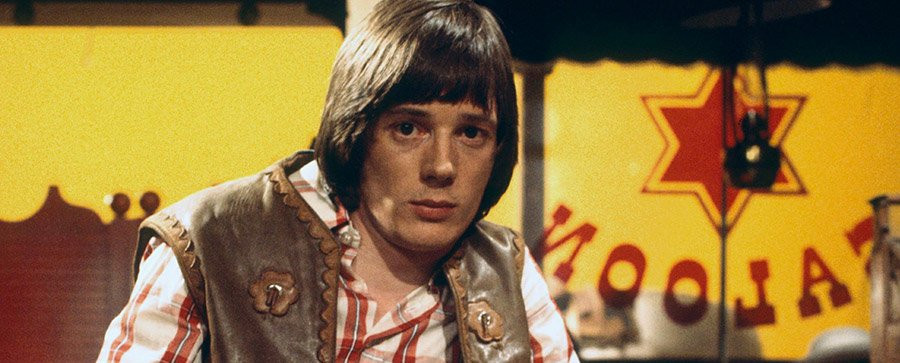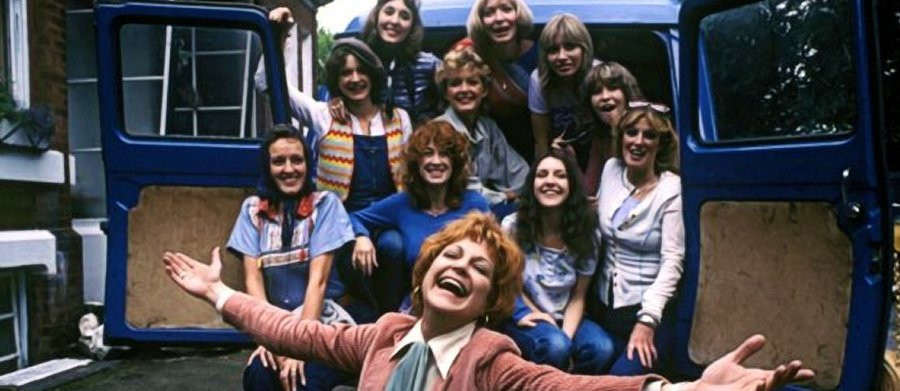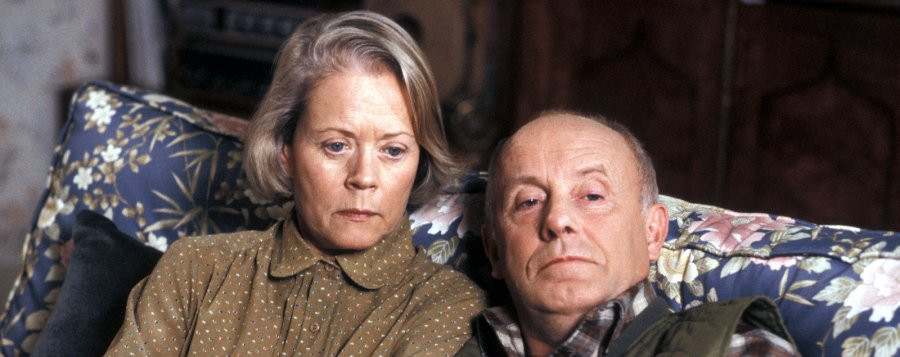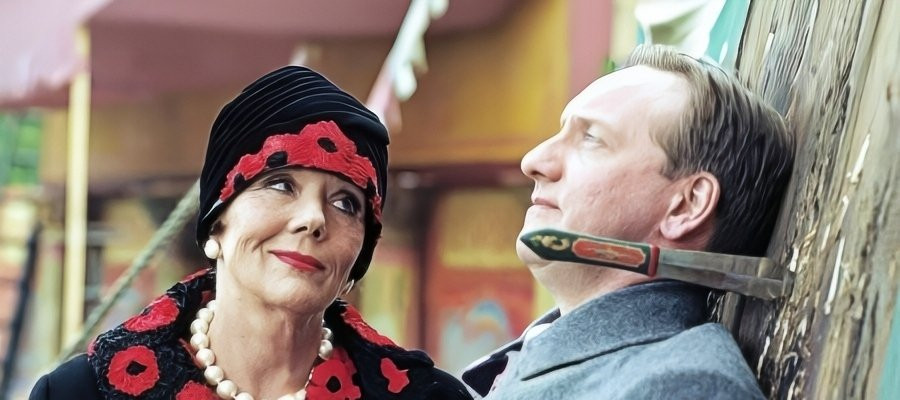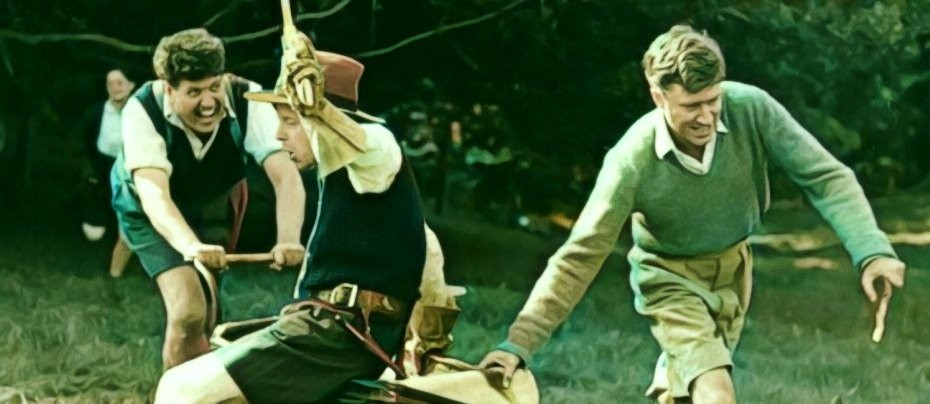
Blue Remembered Hills
1979 - United KingdomOne of the remarkable aspects of Blue Remembered Hills is Potter's decision to cast adult actors in child roles
Television plays have long been a medium through which talented writers and directors can captivate audiences with their storytelling prowess. Dennis Potter, a name that resonates with the world of English theatre, is widely regarded as one of the greatest playwrights of his generation. With his unique and visionary style, Potter pushed the boundaries of conventional storytelling, challenging audiences and breaking new ground in the realm of drama. From his thought-provoking plots to his profound exploration of human emotions, Potter crafted a body of work that continues to captivate audiences even today.
What sets Potter apart from his contemporaries is his unapologetic portrayal of raw human emotions. In his works, he fearlessly confronted themes of sexuality, violence, and social inequality, challenging the norms of society and pushing the boundaries of what was considered acceptable on television. By intertwining gritty realism with surreal moments, he created a distinct style that forced audiences to confront uncomfortable truths.
Potter's career spanned several decades, and he achieved critical acclaim for his television dramas, in particular. One of his most iconic and groundbreaking productions was his Play for Today offering Blue Remembered Hills, an extraordinary work showcasing Potter's ability to craft a compelling narrative that oscillates between the bright naivety of childhood and the darker undercurrents that run through our lives. Through a masterful blend of dialogue and imagery, Potter creates a vivid, yet unnerving world that immerses viewers in the psyche of its characters.
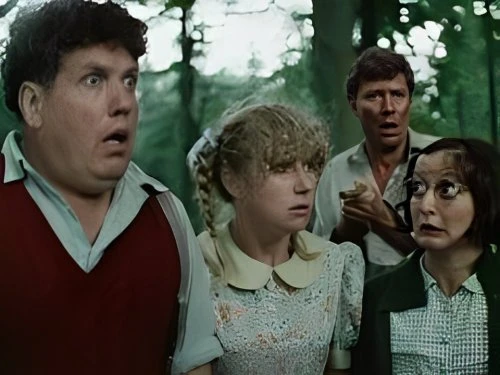
One of the remarkable aspects of Blue Remembered Hills is Potter's decision to cast adult actors in child roles. This deliberate choice adds depth and complexity to the characters, as the actors' adult voices and physicality contrast with the innocence of their characters. This juxtaposition serves as a constant reminder that despite the carefree nature of childhood, the seeds of adult behaviour and emotion are already present.
Potter's writing style is both poetic and realistic. The dialogue is beautifully crafted, capturing the simplicity and spontaneous nature of children's speech while addressing profound themes. The seamless interplay between light-hearted banter and instances of cruelty reflects the dual nature of childhood, where the line between innocence and malevolence can be a fine one. The play explores the power dynamics and the primal urge to assert dominance, even at a young age. Potter dares to illuminate the darker aspects of humanity, questioning the stability of morality and the boundaries of empathy.

The setting of Blue Remembered Hills plays a crucial role in enhancing the impact of the narrative. The bucolic countryside provides a stark contrast to the violence and destruction happening elsewhere in the world during World War II. This dichotomy heightens the sense of isolation and innocence, while also serving as a reminder that no place is completely untouched by the harsh realities of life.
In this poignant scene, a group of children can be seen joyously engaging in play, their energy seemingly boundless as they romp around with an inexhaustible fund of creativity and ingenuity. However, amidst their innocent antics lies a darker reality. These children, with their shifting allegiances and bullying tendencies, often gang up on the weakest among them, subjecting them to acts of cruelty that are both disturbing and shocking. It is their inherent innocence, paradoxically, that makes them capable of such horrifying deeds. In this world devoid of adult supervision, all authority falls upon these young shoulders, forcing them to navigate the intricate dynamics of childhood coaxing and manipulation.

Interestingly, the adult actors portraying these children add an extra layer of emotion to the scene. Among them, the standout performance is delivered by Colin Jeavons (Billy Liar), who flawlessly portrays the character of Donald, a young boy cruelly labelled as "Donald Duck" due to his vulnerable position. With his father missing in action and local gossip swirling about his mother's questionable means of making a living while her husband is away, Donald's plight tugs at the heartstrings of the audience, evoking both sympathy and unease.
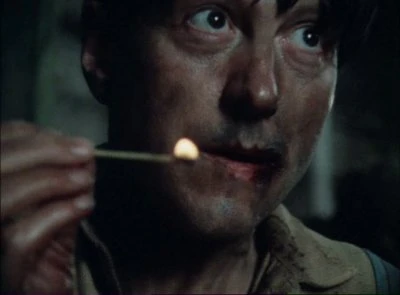
In an emotionally charged scene, Donald finds himself as a lone figure in the seclusion of a barn. With tears streaming down his face, he rocks back and forth, consumed by an overwhelming sense of loneliness. His desperate cries pierce the air, as he pleads for the return of his father, repeating the words "Come back dad... come back dad..." The intensity of this moment is amplified by the fact that it involves an adult displaying childlike emotions. Witnessing an adult weep uncontrollably, their vulnerability reminiscent of a child's is truly shocking.
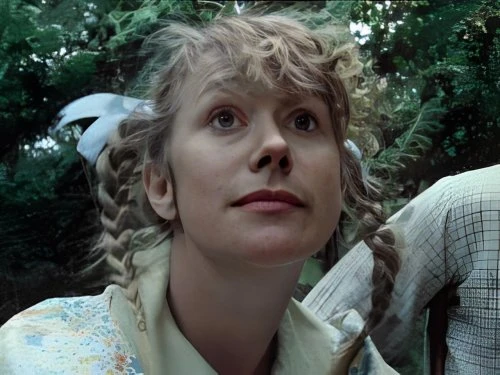
The skilled performances of all the actors enable them to authentically convey the anguish and suffering experienced by the children. Familiar faces grace the screen, with Helen Mirren (Prime Suspect) portraying the sassy and boy-crazy Angela. Michael Elphick (Boon) embodies the role of the abrasive bully Peter, while Colin Welland (Z Cars) brings the character of the dim-witted Willie to life, forever mimicking the sounds of a fighter bomber. The reserved and stuttering Raymond is played by John Bird (A Very Peculiar Practice), who dons a cowboy costume. Among the ensemble are also recognisable actors, such as Robin Ellis (Poldark) who portrays the alpha male John. Janine Duvitski (Abigail’s Party, One Foot in the Grave) shines as the nerdy Audrey, whose cunning antics effortlessly disrupt Raymond's attempt at an upside-down bet.
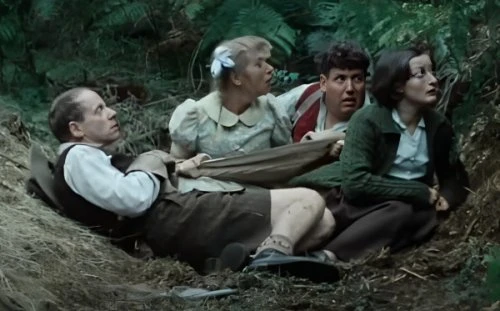
Blue Remembered Hills is characterized by its nuanced exploration of social dynamics. The deadweight of class differences and mob mentality becomes apparent as the children form alliances and vie for power within the group. In this seemingly innocent playground, the power struggles and manipulation reflective of the adult world emerge, highlighting the lasting impact of social hierarchy on individuals from an early age.
An astonishing British TV play that continues to resonate with audiences decades after its original airing, Blue Remembered Hills provokes a narrative that forces viewers to confront uncomfortable truths about human nature. By defying conventions and casting adults as children, Potter effectively reveals the complexities beneath the surface of childhood innocence. With its timeless themes and masterful storytelling, Blue Remembered Hills remains a hallmark of British television and a testament to the enduring power of drama.
Seen this show? How do you rate it?
Seen this show? How do you rate it?
Published on September 28th, 2023. Written by Laurence Marcus for Television Heaven.




